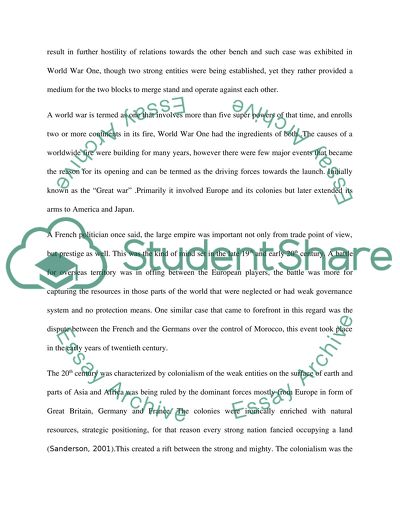Cite this document
(“What were the Main Causes of the First World War Essay”, n.d.)
Retrieved from https://studentshare.org/history/1444089-what-were-the-main-causes-of-the-first-world-war
Retrieved from https://studentshare.org/history/1444089-what-were-the-main-causes-of-the-first-world-war
(What Were the Main Causes of the First World War Essay)
https://studentshare.org/history/1444089-what-were-the-main-causes-of-the-first-world-war.
https://studentshare.org/history/1444089-what-were-the-main-causes-of-the-first-world-war.
“What Were the Main Causes of the First World War Essay”, n.d. https://studentshare.org/history/1444089-what-were-the-main-causes-of-the-first-world-war.


